Latest News
08 March 2021
New test makes detection of genetic material visible to the naked eye
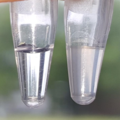
Onderzoekers van de TU Delft hebben een test ontwikkeld waarmee ze specifieke stukjes genetisch materiaal kunnen opsporen, waarna de uitslag met het blote oog af te lezen is. Met de test kunnen onder meer virussen, zoals het coronavirus, en antibioticaresistente bacteriën snel en goedkoop worden gedetecteerd. De resultaten zijn gepubliceerd in Biophysical Journal.
08 March 2021
Corona proof dining out with online tool

Scientists of Wageningen University & Research, TU Delft and Erasmus MC have developed an online tool that helps determine how indoor spaces can be designed and used corona proof. With the OpenSmartTogether tool, restaurant owners can limit the risks of the spreading of the coronavirus in their restaurant. The researchers are inviting restaurant owners to participate in an online pilot.
05 March 2021
TU Delft launches Tech for Health
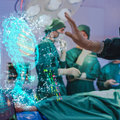
Today, TU Delft launches Tech for Health | Better healthcare thanks to Delft technology. The university is shining a spotlight on its research innovations that contribute to the improvement of healthcare, especially in countries like The Netherlands.
04 March 2021
TU Delft maintains its 15th position in global QS Subject ranking

Just like last year, the World University Rankings by Subjects 2021, published on 3 March, places TU Delft in a respectable 15th position in the broad category Engineering & Technology. Ten disciplines, including Architecture, Civil & Structural Engineering, Mechanical, Aeronautical & Manufacturing Engineering and Environmental Sciences, are ranked in the global top 20.
03 March 2021
Researchers invite all inhabitants of the Netherlands to contribute to climate policy
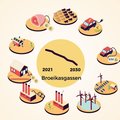
What does the Dutch population think about Dutch climate policy? Researchers from TU Delft and Utrecht University invite thousands of Dutch people to contribute their ideas.
02 March 2021
TU Delft maps own CO2 emissions in detail
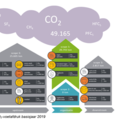
As a ‘climate university’, TU Delft aims to be carbon neutral and circular by 2030. Information regarding CO2 emissions on campus is essential to realising this ambition. The CO2 performance ladder methodology has now been used to map emissions in 2019.
02 March 2021
Measuring system using laser beams and helium bubbles helps top skaters go for gold
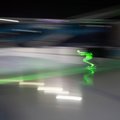
TU Delft, NOC*NSF, KNSB and Innovation Lab Thialf have been using the Ring of Fire measuring system to analyse top Dutch speed skaters. The measuring system was used last week in Heerenveen to measure and visualise the air resistance around a moving skater.
26 February 2021
TU Delft increasing study spaces on campus
Studying online places a heavy burden on students. Therefore, TU Delft is looking at various possibilities to enable more physical education and study places on campus. “We realise that for some students it is very difficult to study at home. That is why we are looking at increasing the number of study places on campus” says Rob Mudde, Vice President of Education TU Delft.
22 February 2021
Climate Action Election Debate Thursday 4 March 2021
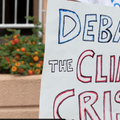
On 4 March, Studium Generale, in collaboration with GreenTU and the Student Council, is organising the Climate Action Election Debate 2021, with representatives of the political youth parties. During this evening we give the generation that will shape the near future a platform to debate their solution for the climate problem. https://sg.tudelft.nl/event/climate-action-verkiezingsdebat-2021/
10 February 2021
5.7 million euro for hybrid energy storage systems
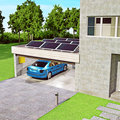
The Dutch Ministry of Economic Affairs and Climate Policy has allocated 5.7 million euro to FLEXINet. In the upcoming years, the FLEXINet consortium will develop hybrid energy storage systems – capable of storing both heat and electricity. Pavol Bauer, professor at TU Delft and project leader and coordinator: ‘The aim of FLEXINet is a system that accelerates the energy transition. We hope to make a substantial contribution to reaching climate targets by cleverly combining various techniques – think of blending recycled batteries with flexible heat pumps and the charging of electric cars.’
